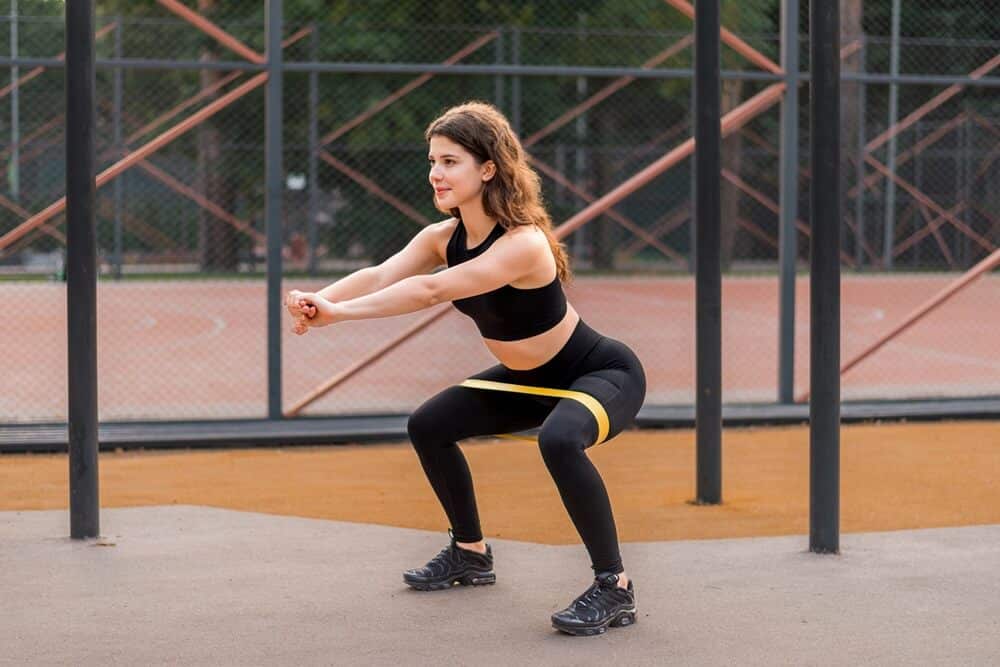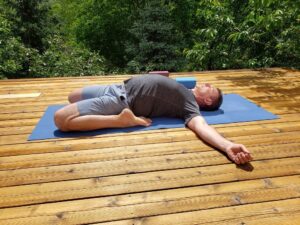For many active people and athletes, the concept of mindfulness meditation may seem unusual or irrelevant.
The idea of sitting still and chanting doesn’t seem applicable to hitting the pavement for a run or stepping into the boxing ring.
However, there are truths around how purposeful mindfulness can provide tangible, game-changing benefits for both weekend warriors and elite professionals alike.
As an amateur boxer and marathon enthusiast may experience, mindfulness can sharpen concentration, reduce anxiety, prevent injuries by tuning into the body, and more.
These are just a few examples of how profound this seemingly simple practice can be for sport.
While myths about mindfulness and performance still exist, the evidence-based advantages are too significant to ignore.
In this article, we will explore some key truths about how mindfulness gives active people an edge, both for the general exerciser and athletes in different sports. Keep reading to find out more.
What is Mindfulness?
Mindfulness essentially means paying attention, on purpose and non-judgmentally, to the present moment. Mindfulness ‘is kind of a superpower’ and can help you have a brilliant career.’
So, rather than worrying about the future or ruminating on the past, mindfulness trains our brains to focus on what is happening right here and now in a curious and open manner.
For athletes, mindfulness training emphasizes anchoring one’s attention on proper technique, pacing, and body sensations during training and competition. This helps athletes get “in the zone” more often to produce better performances.
What are the Benefits of Mindfulness for Athletes?
Incorporating mindfulness has been shown to provide numerous advantages for athletes across various sports. Some key benefits include:
- Enhanced focus and concentration: Mindfulness meditations strengthen athletes’ ability to block distractions, calm inner chatter, and zero in on game-relevant cues. This leads to better attention control and decision-making.
- Reduced anxiety: Mindful breathing and body scans alleviate symptoms of performance anxiety, competition stress, and pre-game nerves. Athletes learn to watch anxious thoughts come and go without identifying with them.
- Injury prevention: Listening to physical sensations makes athletes better attuned to early warning signs of injuries. So, mindfulness can help to prevent injuries by increasing awareness of the body and its limits.
- Improved resilience: Being present at the moment, without dwelling on past errors or future uncertainties, increases mental toughness and resilience following setbacks. Athletes can “bounce back” faster.
- Better performance: Studies show mindfulness boosts sports competencies – from free throws in basketball to pistol shooting and archery. Increased attentional control and resilience translate into enhanced on-field execution.
How can an Athlete Develop Mindfulness?
Like any other skill, mindfulness requires regular practice to develop. Athletes can follow a few key recommendations:
- Set aside 10-15 minutes daily for mindfulness sessions – whether seated meditations, mindful walking, or body scans. Apps like Headspace provide useful guidance.
- Integrate informal mindfulness practices into training routines. For example, perform every rep mindfully during weight training by focusing fully on bodily movements and sensations.
- Learn basic mindfulness techniques like anchoring attention to the breath and noting thoughts non-judgmentally as they arise. Yoga and Tai Chi routines also cultivate mindfulness.
- Identify everyday activities that can be done mindfully – like eating, stretching, and warming up. Keep bringing wandering attention back to what you are doing.
- Practice mindfulness during lower-stakes competitive situations to prepare for high-pressure tournaments. Notice anxious thoughts but avoid getting entangled in them.
How to Apply Mindfulness in Different Sports
While mindfulness helps all athletic endeavors, the emphasis may differ depending on the sport.
Mindfulness in Endurance Sports
Endurance athletes benefit from a dominant focus on bodily sensations and pacing rather than outcome-driven thought. Sustained mindful attention enhances the cardiovascular economy.
Mindfulness in Ball Sports
Ball sports demand dynamic cognitive control to navigate rapidly changing game situations. Mindfulness helps these athletes maintain composure under pressure and quickly recalibrate focus after mistakes.
Mindfulness in Combat Sports
Fighters use mindfulness to modulate arousal levels leading up to, during, and after matches. This allows them to conserve energy and avoid adrenal fatigue from excessive stress reactions.
Mindfulness in Precision Sports
Precision sports like archery or shooting require astute sensory-motor control. Mindfulness hones attention to synchronize breath with fine motor movements for accuracy.
While the context changes, mindfulness confers both general and specialized advantages in sports.
Overcoming Obstacles to Practicing Mindfulness
It’s not always easy to incorporate mindfulness into intense training regimens. Athletes may encounter these barriers:
- Difficulty sitting still: Mindfulness can be cultivated during dynamic activities like jogging.
- Resistance to new concepts: Relatable analogies connect mindfulness to existing mental skills training.
- Lack of motivation: Noticing direct performance improvements incentivizes practice.
- Negative thought patterns: Not taking thoughts literally or personally reduces rumination.
- Time limitations: Shorter practices of 5-15 minutes still yield cognitive gains if consistent.
With creative solutions, athletes can overcome obstacles to stick with mindfulness training.
Conclusion
In conclusion, mindfulness provides multifaceted performance benefits for athletes across sports by cultivating presence, body awareness, focus, and composure.
A consistent mindfulness practice can be integrated with existing training to take skill development to the next level. While some barriers exist, purposeful mindfulness is well worth the investment for unlocking athletic potential.
The truths surrounding mindfulness in sports are clear – it notably enhances both mental fortitude and physical ability when applied deliberately. Give mindfulness a try to take your athletic capacities to new heights!
If you liked this post, leave us a comment on what you think about how mindfulness can help develop you as an athlete!
References
- Scott-Hamilton, J., Schutte, N.S. & Brown, R.F. (2016). Effects of a Mindfulness Intervention on Sports-Anxiety, Pessimism, and Flow in Competitive Cyclists. Applied Psychology: Health and Well-Being, 8(1), 85-103.
- De Petrillo, L.A., Kaufman, K.A., Glass, C.R., & Arnkoff, D.B. (2009). Mindfulness for Long-Distance Runners: An Open Trial Using Mindful Sport Performance Enhancement (MSPE). Journal of Clinical Sport Psychology, 3(4), 357-376.
- Kaufman, K.A., Glass, C.R., & Arnkoff, D.B. (2009). Evaluation of Mindful Sport Performance Enhancement (MSPE): A New Approach to Promote Flow in Athletes. Journal of Clinical Sport Psychology, 3(4), 334-356.
- Scott-Hamilton, J. & Schutte, N.S. (2016). The Role and Impact of Mindfulness on Athletic Task Performance. Current Opinion in Psychology, 16, 131-135.







